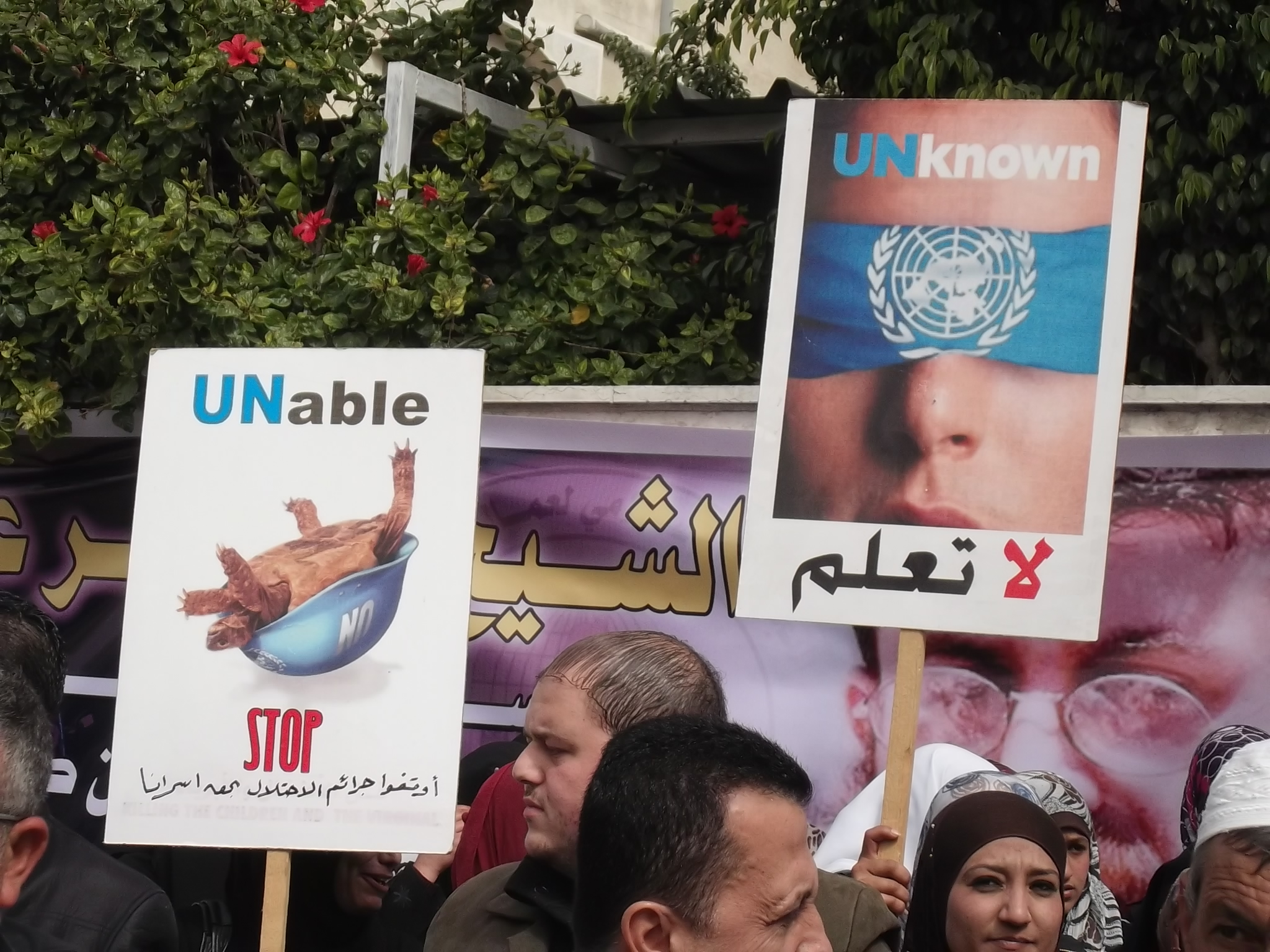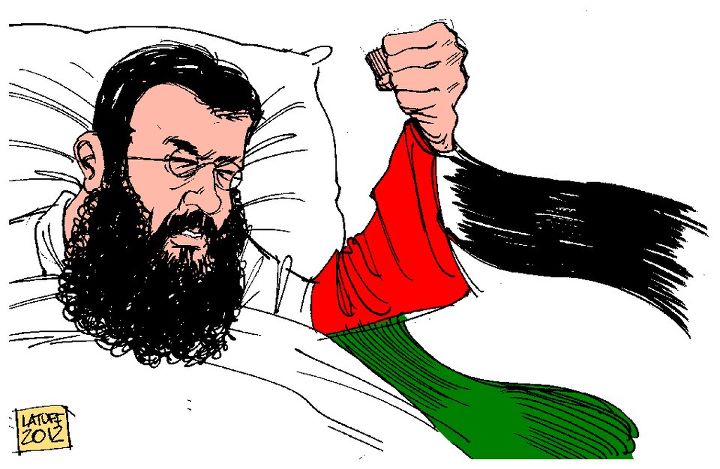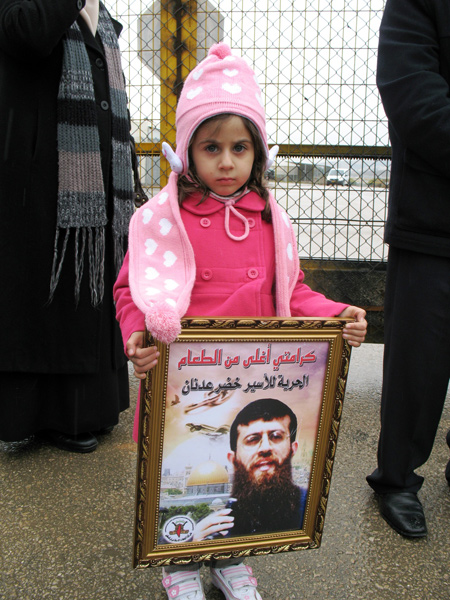Tag: Khader Adnan
-
Dying to live: A hunger striker speaks in Gaza
by Joe Catron 14 February 2012 | Mondoweiss As hundreds of Palestinians rallied in Gaza today to demand that Israel release Palestinian administrative detainee Khader Adnan, Yassar Salah, a 17-year veteran of Israel’s prison system, spoke about Adnan’s 60-day hunger strike and his own reasons for joining it. “We are on hunger strike to show…
-
URGENT: Heed Randa Adnan’s call. Military court rejects Khader Adnan’s appeal in de facto death sentence
13 February 2012 | Samidoun: Palestinian Prisoner Solidarity Network “My husband is dying inside an Israeli jail. The world should make sure I am able to see him,” she said. “And it should pressure the Israeli government to release him before it’s too late… Israel denied Khader any fairness or decency…But maybe the rest of…
-
Randa Adnan: The world must intervene to save my husband
by Joe Catron 13 February 2012 | Mondoweiss As Khader Adnan entered his 59th day on hunger strike, his wife Randa appealed for the international community to end his isolation and save his life. “My husband is dying inside an Israeli jail. The world should make sure I am able to see him,” she said.…



